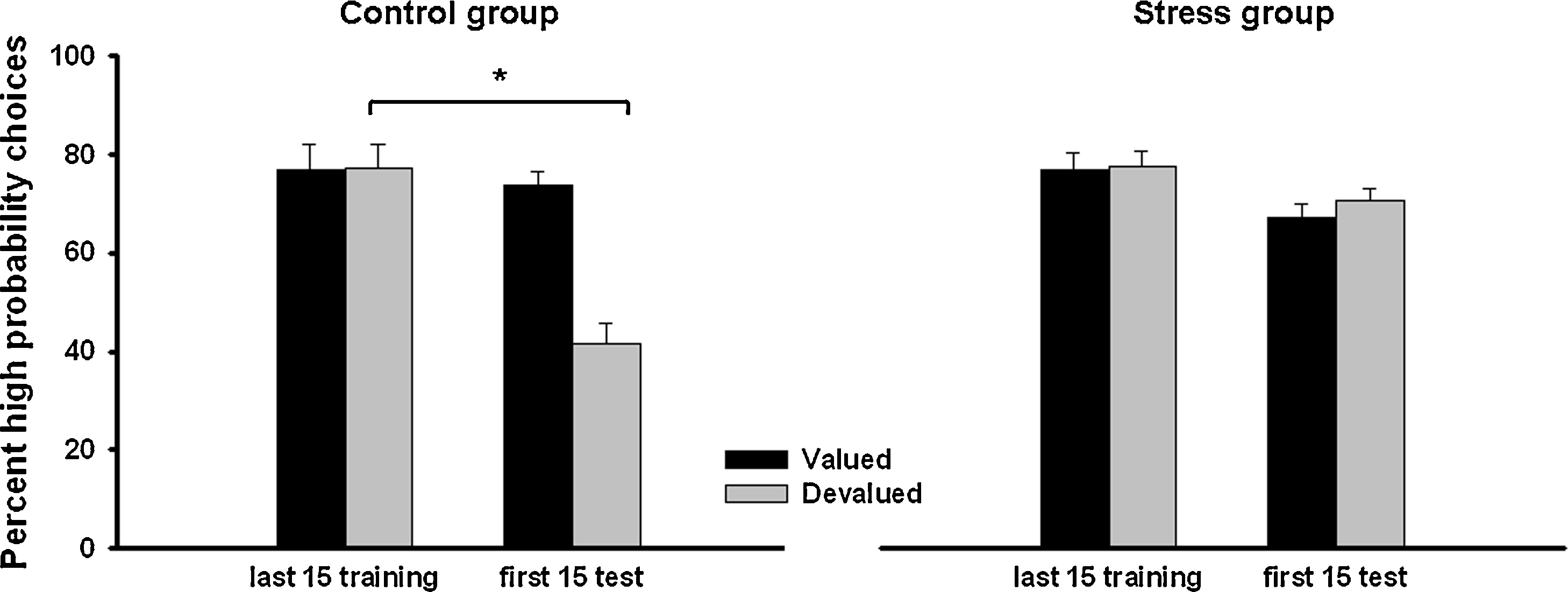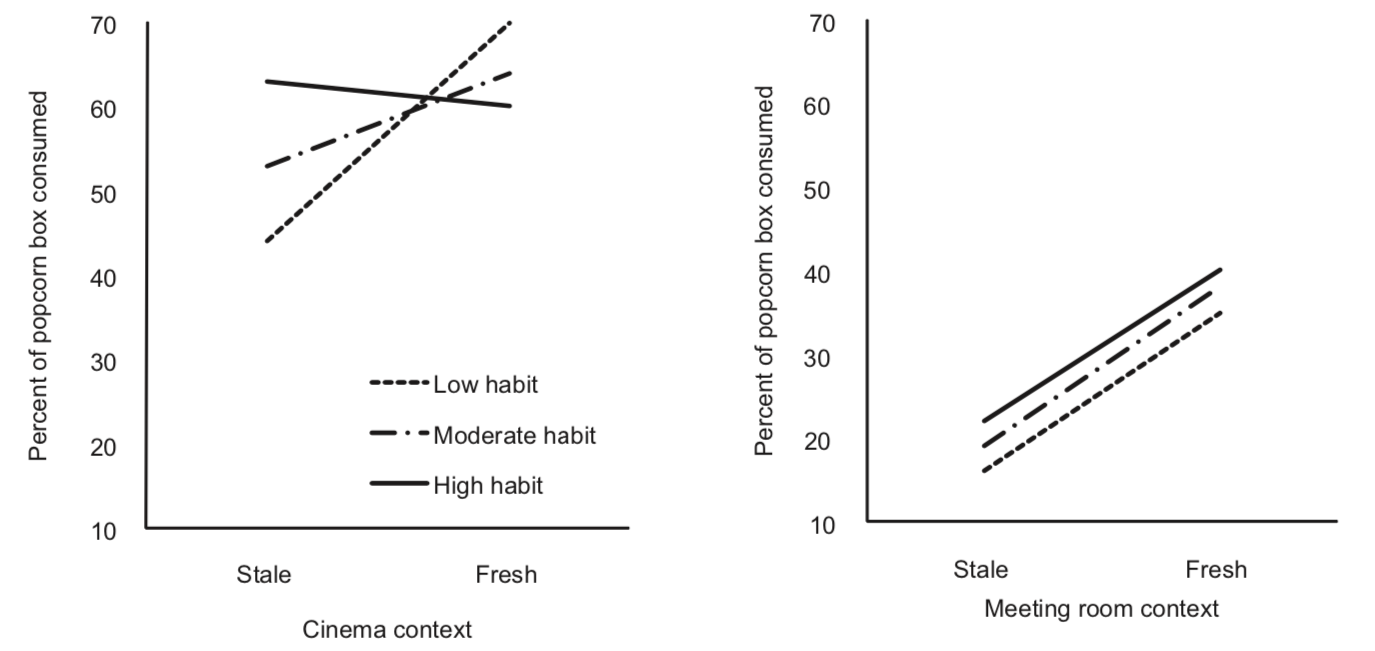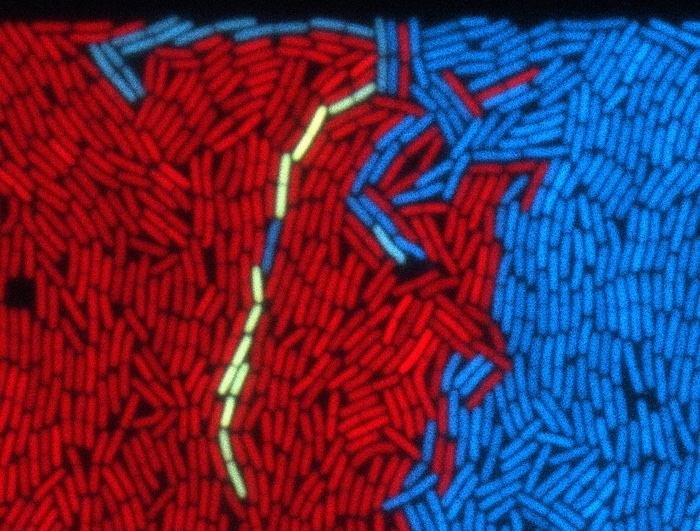Click here and press the right key for the next slide.
(This may not work on mobile or ipad. You can try using chrome or firefox, but even that may fail. Sorry.)
also ...
Press the left key to go backwards (or swipe right)
Press n to toggle whether notes are shown (or add '?notes' to the url before the #)
Press m or double tap to slide thumbnails (menu)
Press ? at any time to show the keyboard shortcuts

The Problem of Action meets Habitual Processes


What distinguishes your actions from things that merely happen to you? (‘The Problem of Action’)
Standard Solution: actions are those events which stand in an appropriate causal relation to an intention.
‘deviant causal chains’ (Davidson, 1980, pp. 78--9)
Minimally, the action should not manifestly run counter to the intention; and neither should whether the action occurs be independent of what the agent intends.
Objection: some instrumental actions manifestly run counter to the agents’ intentions.
Why is this an objection?
How do we know? From persistence following devaluation!

Schwabe & Wolf (2010, p. figure 6)
Sometimes your instrumental actions manifestly run counter to your intentions.
1. Preferences shape intention:
pathological cases aside,
if there are two outcomes
and you prefer one outcome to the other,
and there are no reasons to pursue the other outcome,
then you will not intend an action that brings about the less preferred action.
2. Where habitual processes dominate, you sometimes pursue less preferred outcomes. .notes. Where habitual processes dominate, preferences are irrelevant.
Therefore
3. Sometimes your instrumental actions manifestly run counter to your intentions.
another example—new study (popcorn)

Neal, Wood, Wu, & Kurlander (2011)
Sometimes your instrumental actions manifestly run counter to your intentions.
What distinguishes your actions from things that merely happen to you? (‘The Problem of Action’)
Standard Solution: actions are those events which stand in an appropriate causal relation to an intention.
‘deviant causal chains’ (Davidson, 1980, pp. 78--9)
Minimally, the action should not manifestly run counter to the intention;and neither should whether the action occurs be independent of what the agent intends.
Objection: some instrumental actions manifestly run counter to the agents’ intentions.
Why is this an objection?
How do we know? From persistence following devaluation!
aside: you can also make this argument using AHS
(Della Sala, Marchetti, & Spinnler, 1991)
response 1
insist there’s an intention


Neal et al. (2011)
option (i) - the intention to eat the stale popcorn is more common in ‘high habit’ group ... but only in the cinema
‘strong-habit participants experienced the shift in motivation as a function of the food’s freshness. They rated the fresh popcorn as more likable than the stale, and thus they did not value the popcorn more than those with weak habits. [...]
‘Furthermore, tests of whether the habit effects depended on liking for the popcorn or current hunger revealed that these factors did not moderate the effects of habit strength on eating.’
(Neal et al., 2011, p. 1432)
option (ii) - there are other intentions, perhaps intentions to empty the bag, or intentions to grasp and place
option (iii) - intentions are in the background ...
DanielKnoth [2022–23] Conjecture
(a) when the habit was originally formed, there existed some kind of intention and
(b) the habitual process, later on, is still linked to that original intention
[see also Bratman (1984) on ‘motivational potential’]

Neal et al. (2011)
option (i) - the intention to eat the stale popcorn is more common in ‘high habit’ group
option (ii) - there are other intentions, perhaps intentions to empty the bag, or intentions to grasp and place
old: stimulus–action + stimulus → action
new: stimulus–action + stimulus → intention → action
option (iii) - intentions are in the background
response 1
insist there’s an intention
What distinguishes your actions from things that merely happen to you? (‘The Problem of Action’)
Standard Solution: actions are those events which stand in an appropriate causal relation to an intention.
‘deviant causal chains’ (Davidson, 1980, pp. 78--9)
Minimally, the action should not manifestly run counter to the intention;and neither should whether the action occurs be independent of what the agent intends.
Objection: some instrumental actions manifestly run counter to the agents’ intentions.
Why is this an objection?
How do we know? From persistence following devaluation!
response 2
deny instrumental actions are all actions
‘Among the things I did were
get up,
wash,
shave,
go downstairs, and
spill my coffee.’
(Davidson, 1971, p. 43)
‘Among the things that happened to me were
being awakened and
stumbling on the edge of the rug.’
(Davidson, 1971, p. 43)
eating popcorn
pressing a button to watch a film clip

What distinguishes your actions from things that merely happen to you? (‘The Problem of Action’)
Standard Solution: actions are those events which stand in an appropriate causal relation to an intention.
‘deviant causal chains’ (Davidson, 1980, pp. 78--9)
Minimally, the action should not manifestly run counter to the intention;and neither should whether the action occurs be independent of what the agent intends.
Objection: some instrumental actions manifestly run counter to the agents’ intentions.
Why is this an objection?
How do we know? From persistence following devaluation!

challenge
Discover why people act,
individually and jointly.